Originally published: August 2, 2024
Last week I shared Energy Sound Bites to support the first core truth about fossil fuels: We must think of fossil fuels in a balanced way.
Today, I’ll share Energy Sound Bites to support the second core truth: Only by using fossil fuels can 8 billion people have the energy they need to survive and flourish.
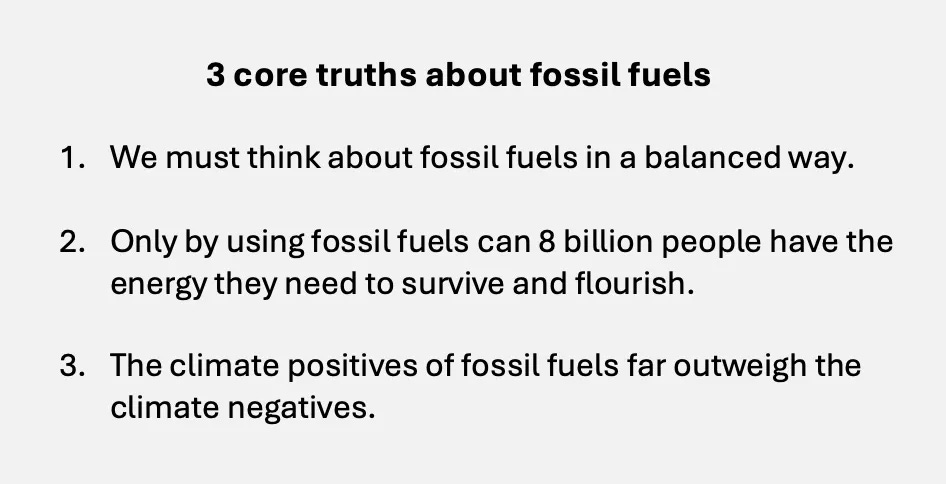
As a reminder, the goal of Energy Sound Bites is to distill key facts and insights about energy, environmental, and climate issues into a form—100 characters or less—that’s short enough to remember and repeat whenever you need them.
Only by using fossil fuels can 8 billion people have the energy they need to survive and flourish.
-
Fossil fuels are a uniquely cost-effective and scalable source of energy.
- Fossil fuels provide 80%+ of the world’s energy and are growing fast.
- Fossil fuels are growing in spite of 100+ years of competition and 20+ years of political hostility.1
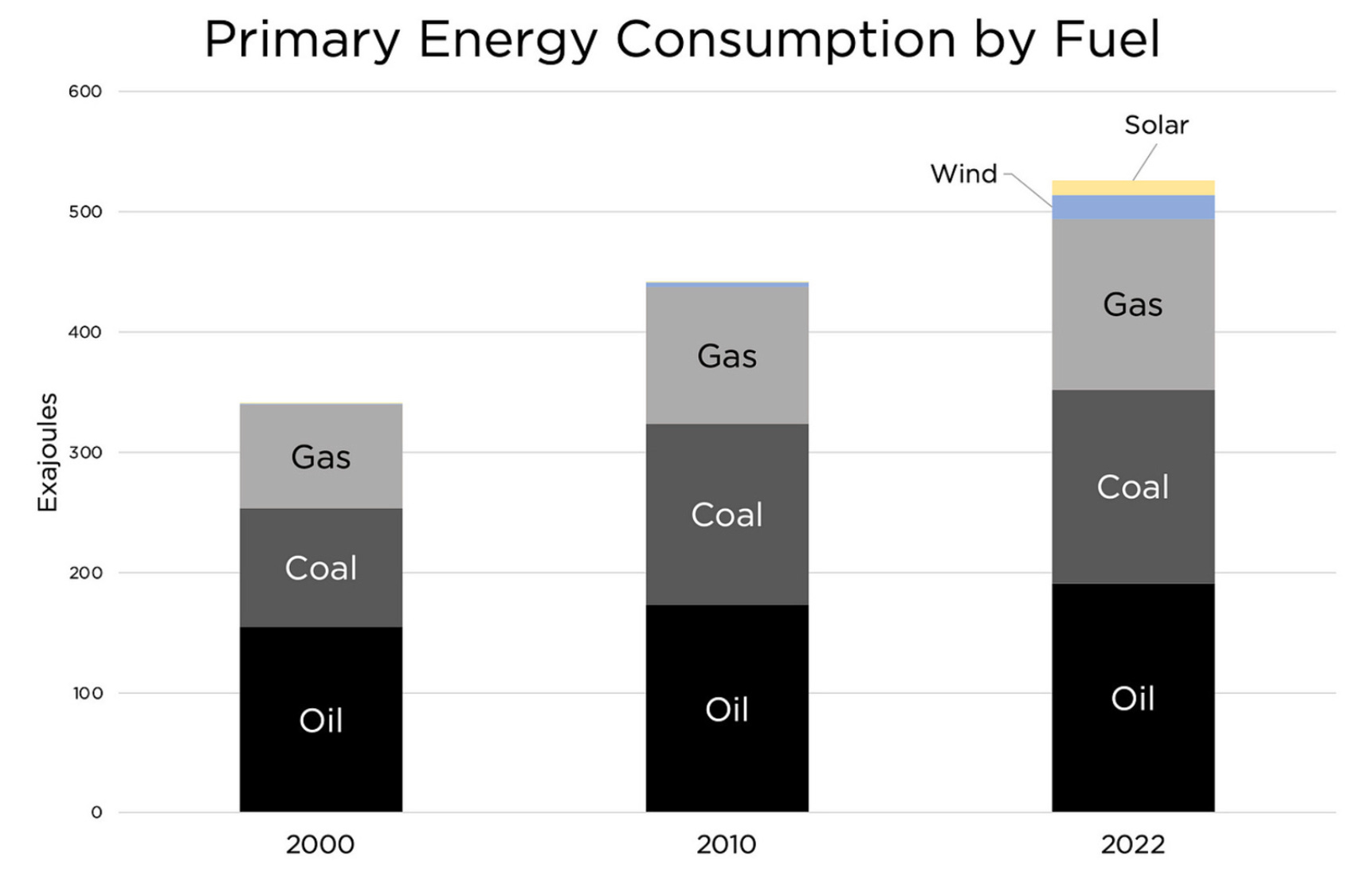
- Fossil fuels provide 80%+ of the world’s energy and are growing fast.
-
Countries that care most about cheap energy are pro-fossil fuels.
- China, which uses mostly coal to produce “green” technology, has 300+ coal plants in the pipeline.2
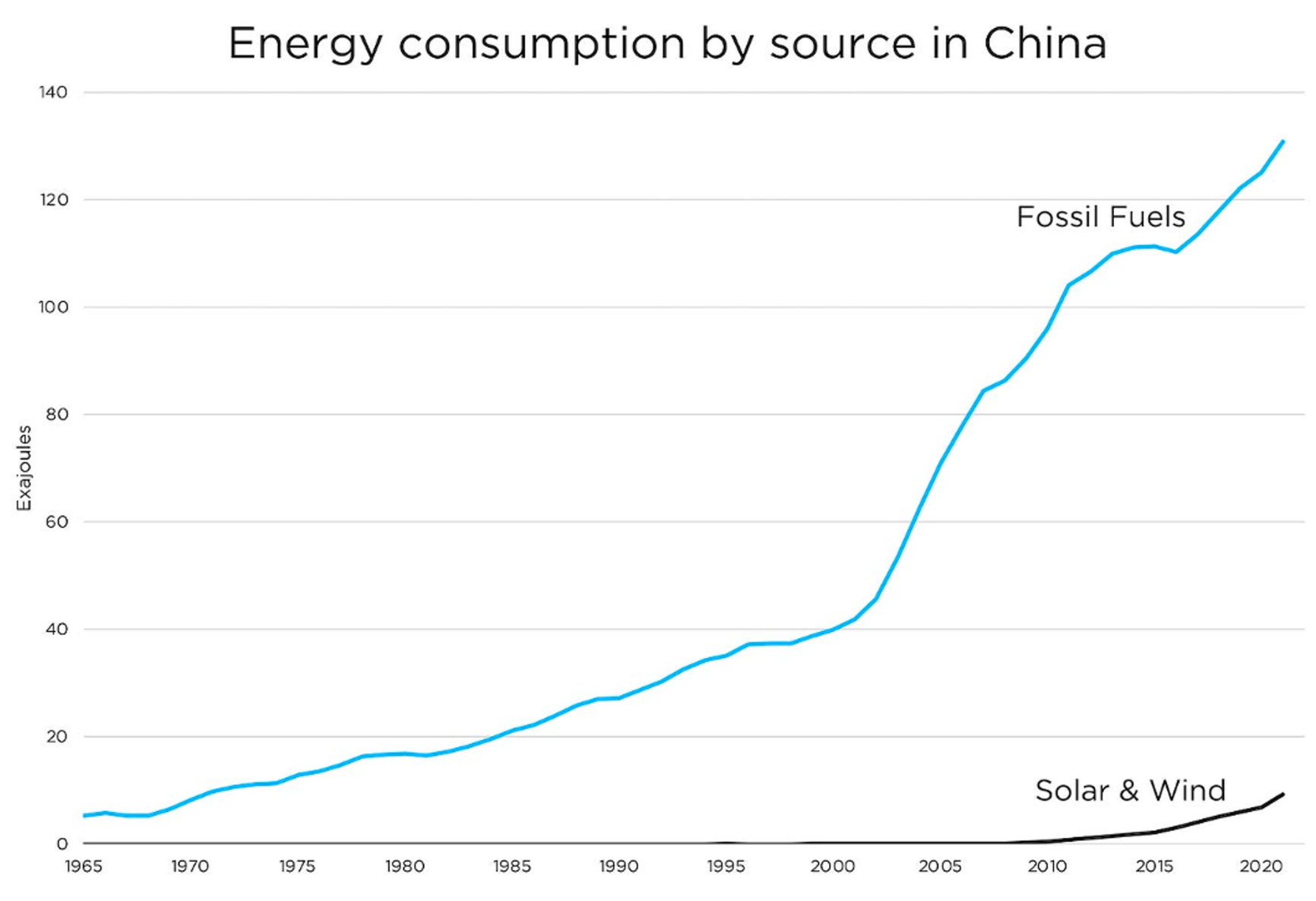
-
Fossil fuels’ success comes from a combination of natural attributes and generations of innovation.
- Fossil fuels are uniquely cost-effective due to being naturally stored, concentrated, and abundant.
- Fossil fuels are uniquely cost-effective due to 100+ years of innovation.
- Only nuclear rivals fossil fuels’ natural attributes—but it has been crippled by irrational policy.
-
Unreliable solar and wind are nowhere near able to replace fossil fuels.
- For most energy needs, solar/wind either can't do what fossil fuels can or are far more expensive.
- Solar/wind only provide <6% of world energy—and only electricity, which is 1/5 of energy.3
- Electricity from solar and wind depends on huge subsidies and 24/7 life support from reliable power.
- Solar and wind’s basic problem is unreliability: they can go near-zero at any time.
- Solar and wind provide exactly the amount of electricity that’s needed 0% of the time.4
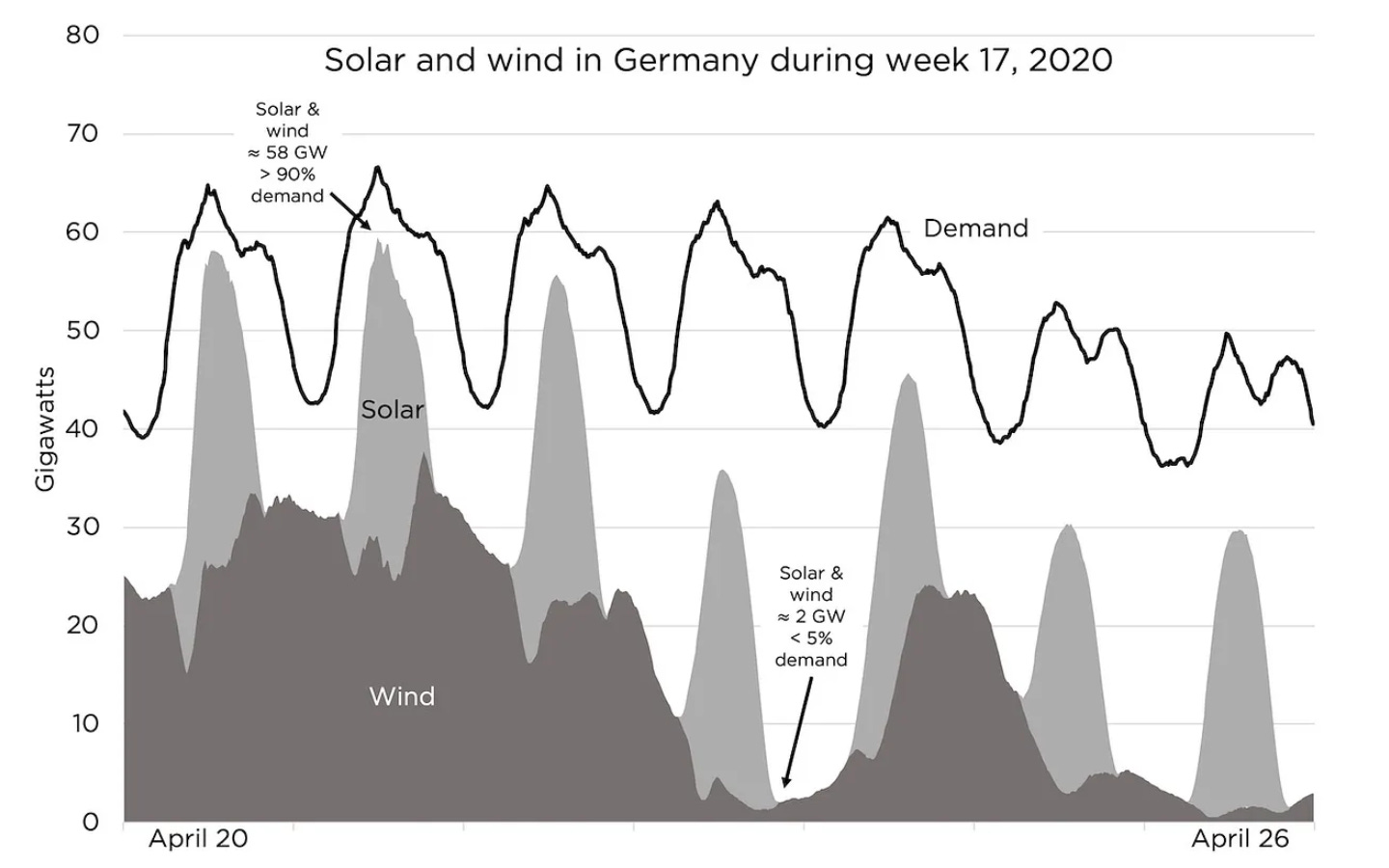
- Since solar and wind are unreliable they don’t replace reliable power, they parasite on it.
- No grid is near 50% solar and wind without huge parasitism on reliable neighbors.
- Current battery technology can’t make up for solar and wind’s unreliability.
- Just 3 days of global solar/wind backup with Elon Musk’s Megapacks would cost ~$320T, >3X global GDP.5
- For most energy needs, solar/wind either can't do what fossil fuels can or are far more expensive.
-
Reliable nuclear and geothermal are nowhere near able to replace fossil fuels.
- In its current state, nuclear is generations away from being cost-effective on a global scale.
- Producing as much nuclear energy as fossil fuel by 2050 would require adding four 1GW nuclear plants every day.6
- A huge obstacle to scaling nuclear is its crippling by unscientific restrictions.
- US policy in particular is so anti-nuclear that no one can build a plant cheaply anymore.
- Geothermal as we know it is nothing resembling a scalable, near-term replacement for fossil fuels.
- Current geothermal is not scalable as it requires rare geological heat reservoirs, e.g., like Iceland’s.
- “Deep geothermal” has long-term promise, but is in an experimental state and not at all scalable.
- In its current state, nuclear is generations away from being cost-effective on a global scale.
-
Cost-effective and scalable energy is essential for humans to flourish on Earth.
- Earth, including Earth’s climate, is a naturally very inhospitable place.
- Many people operate under the false assumption that Earth is a “delicate nurturer.”
- On the “delicate nurturer” assumption, unimpacted nature exists in a stable, safe, sufficient balance.
- On the “delicate nurturer” assumption, humans are “parasite-polluters” whose impact inevitably leads to disaster.
- In truth, Earth is not a “delicate nurturer” but “wild potential”: dynamic, deficient, and dangerous.
- In truth, humans are “producer-improvers” who can impact Earth for the better.
- Humans can only flourish on Earth if we use energy to transform it into an abundant and safe place.
- Since Earth is naturally deficient and dangerous, we must use energy to make it abundant and safe.
- Energy powers machines and frees up time to radically amplify and expand humanity’s productive ability.
- Fossil fuels make possible an unprecedented quality of life.
- Thanks to cost-effective and scalable fossil fuel energy, the world has never been a better place to live.
- Energy from fossil fuels is fundamental to modern life, from agriculture to sanitation to medical care.
- Thanks to energy from fossil fuels, life expectancy and income have skyrocketed.7
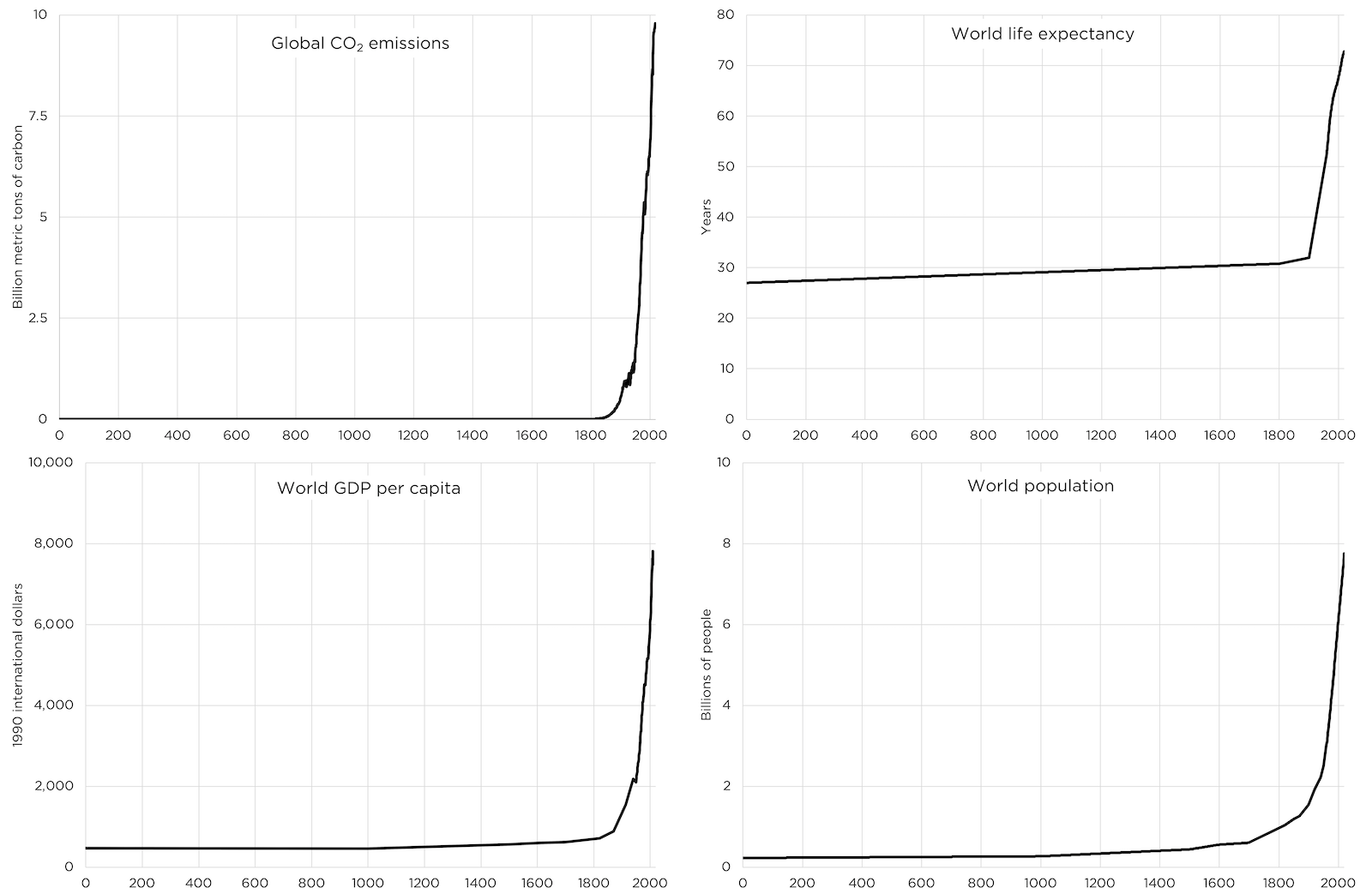
- As China’s fossil fuel use increased over 600% since 1980, its life expectancy increased by 15 years.8
- As India’s fossil fuel use increased by over 700% since 1980s, its life expectancy increased by 14 years.9
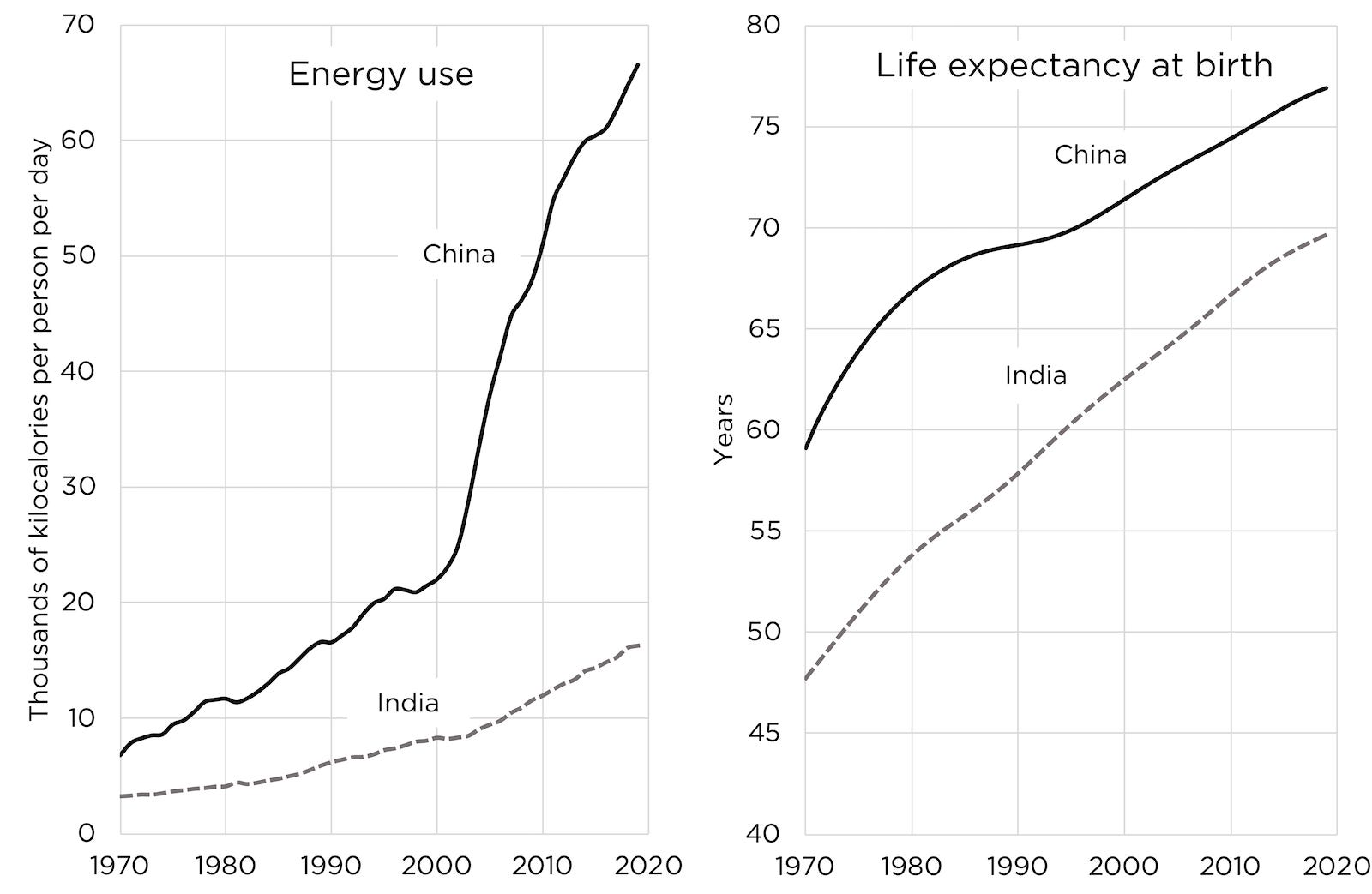
- Fossil fuels have brought billions out of poverty with the opportunity for prosperity.
- Thanks to cost-effective energy (mostly fossil fuel), extreme poverty has plummeted to <10% from 42% in 1980.10
- Earth, including Earth’s climate, is a naturally very inhospitable place.
-
Most of the world’s 8 billion people lack the energy they need to flourish.
- The vast majority of the world needs much more energy to get out of poverty.
- 3 billion people use less electricity than an American refrigerator.
- 1/3 of the world uses wood and animal dung for heating and cooking.11
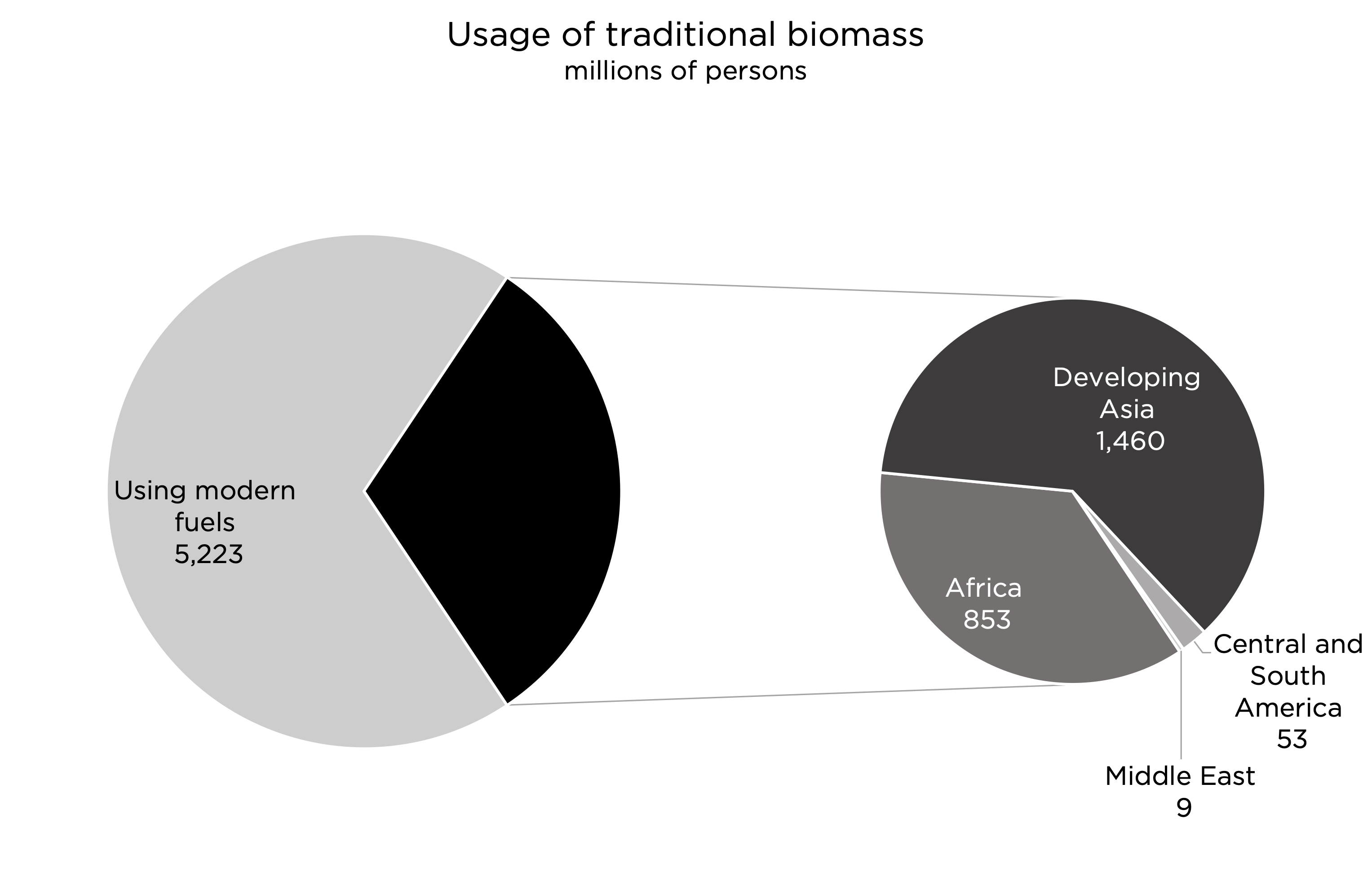
- Even in America, millions cannot afford enough energy.
- Almost 1 in 3 American households say they’ve gone without food or medicine to pay for energy.
- 1 in 5 of American households say they’ve kept their home at an unsafe temperature due to energy costs.12
- The massive need for energy can only be satisfied if massive fossil fuel use continues and expands.
- Without fossil fuels, billions of energy-starved people plunge into poverty and early death.
- With fossil fuels, billions more people can have the opportunity to flourish.
- The vast majority of the world needs much more energy to get out of poverty.
Michelle Hung contributed to this piece.
References
-
Global primary energy consumption in 2023 was 619 EJ or about 471 TWh (= 471,000,000 MWh) per day. According to Tesla Megapacks cost about $226,000 per MWh without considering utility-scale maintenance and installation (2024 prices).
Tesla - Order Megapack -
Fossil fuel use in 2018 according to BP (now data is curated by the Energy Institute) was 11,743.6 million tons oil equivalent ≈ 136,500,000 GWh, 1GW capacity at near maximum capacity factor ≈ 8,760 GWh/y → 15,582 GW, reactor reactor capacity needed → distributed over 3,650 days (10 years) → 4.2 GW per day.
Energy Institute - Statistical Review of World Energy↩ -
World Bank Data - Poverty headcount ratio at $1.90 a day (2011 PPP) (% of population)↩
-
IEA - Access to affordable, reliable, sustainable and modern energy for all
Robert Bryce - A Question of Power: Electricity and the Wealth of Nations↩
-
Lendingtree - Nearly a Third of Americans Cut Back or Skip Expenses to Pay Utility Bills↩